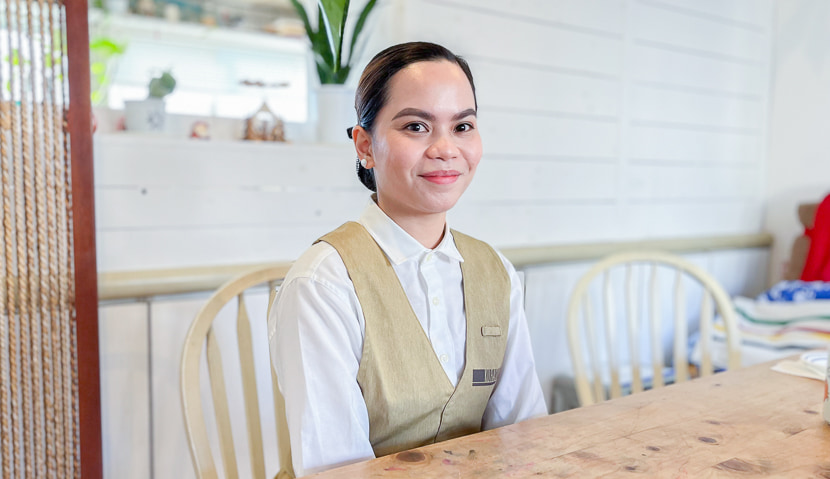
What is it really like to work as a housekeeper in Japan? Kurashinity employee Shielou shares her thoughts on life as a housekeeper in Japan.
Shielou has had no trouble with homesickness since she arrived in Japan from the Philippines in February 2020. This is quite different from her experience in Saudi Arabia, where the Davao City native worked for two years in her twenties. There, the hours were long and the isolation a challenge, especially in the first few months. Working for Kurashinity is a breath of fresh air for Shielou and she feels comfortable and secure in both her working life and her personal life.
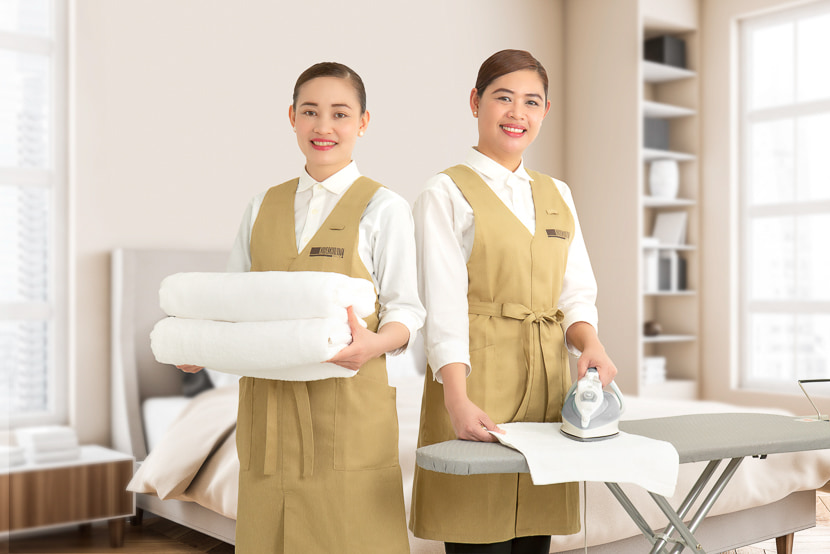
Shielou, now thirty years old, arrived in Japan the month before COVID-19 was designated a pandemic: “When we arrived here in Japan, it was before Japan closed the borders because of the coronavirus… Because lots of clients canceled their services, we were very afraid that we would lose our jobs. But luckily, Pasona [the company that operates Kurashinity] didn’t stop giving us hope that we could still work.”
Kurashinity pays its workers a monthly wage, and Shielou, like her colleagues, is a company worker with the protections that come along with the position. This experience early in her time at Kurashinity helped cement Shielou’s trust in the company.

Her story with Kurashinity began with an intense interview process, and she then received training in housekeeping and the Japanese language in the Philippines before traveling to Japan. “Because I was a housekeeper before, the housekeeping training was familiar for me,” she explains.
That’s not to say there haven’t been difficulties: differences in language, culture, and transportation habits have all brought challenges. “There was culture shock,” she laughs. “It was very new to me. The people and the culture - they’re very different. The language, of course, is very different.”
In fact, when Shielou arrived, her Japanese was limited to the basics. But that’s now changed, and Shielou, who is fluent in English, has passed the N4 (upper-beginner) level of the Japanese-Language Proficiency Test, with her sights now set on N2, the second-highest level.
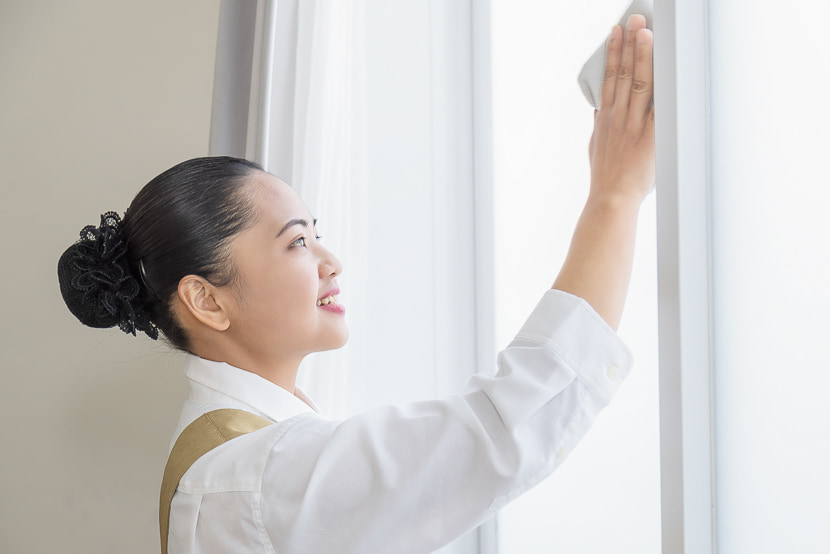
Her ambitions don’t end there, either. Shielou is nearly three years into her five-year visa, and in addition to passing N2 before her visa expires, she aims to ride the Shinkansen and travel widely around Japan, with Osaka and Hiroshima ranking high on her list of must-visit cities. Already, she’s been to Tochigi Prefecture’s Nikko, home of the magnificent Toshogu shrine complex, and Niigata Prefecture, where she skied for the very first time.
As for her long-term goals, Shielou dreams of either extending her stay in Japan on a different visa or returning home and opening a business. Not surprisingly, given her enthusiasm for travel, the idea of working on a cruise ship has also piqued her interest.
Fine-tuning aspirations and creating a framework to pursue them is part of the training that Kurashinity provides for its employees. Not only does Kurashinity have an in-house training program that provides opportunities for advancement - Shielou has a three-star certification out of a possible five stars and is aiming for another - it also supports continued language study and encourages employees to seriously consider their futures. Shielou cites the ongoing support as one of the highlights of working for Kurashinity. “The company helps us a lot,” she explains, “not just with our skills but also with our personal growth.”
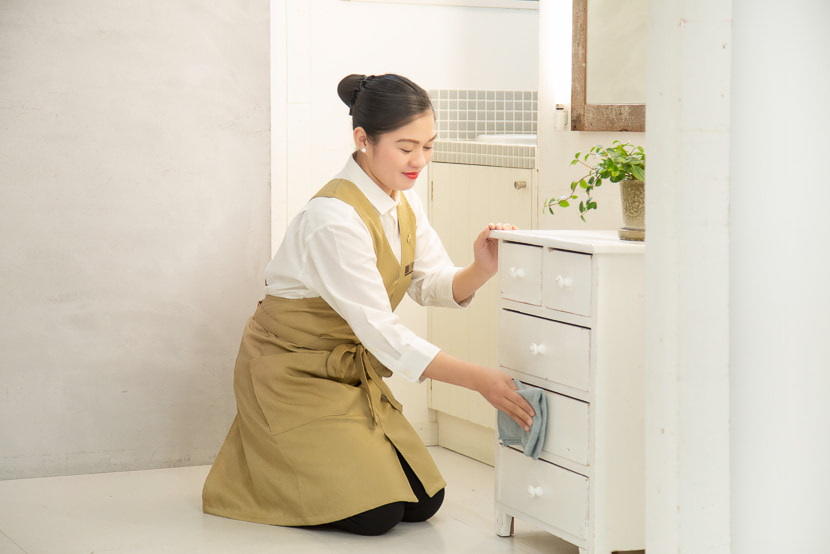
Other perks of working for Kurashinity, according to Shielou, include reasonable hours, ample holidays, and annual paid leave.
Shielou’s work-life balance at Kurashinity allows her to enjoy her favorite aspects of life in Japan: the changing of the seasons and the country’s many tourist spots. She and her colleagues also get the chance to visit home, though the ongoing pandemic has made this difficult the past few years. Shielou hopes next year will see her return home for a visit.
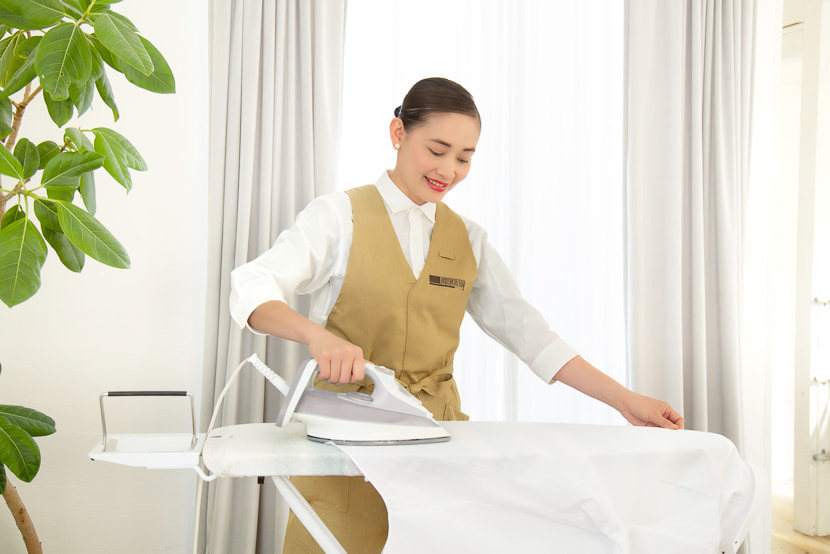
Reminders of home are never too far away, though, as Shielou lives in a Kurashinity residence with fellow Filipina Kurashinity employees. There, she’s able to make her native dishes, speak Tagalog with roommates, and find support from colleagues who have been in Japan and working for Kurashinity longer than she has. “I can approach them if I have a problem,” she says. “I can share my feelings with them.”
Even with the challenges of language and culture, Shielou is happy to be here: “Maybe if I were given a chance to work here again, I would take that opportunity, because working here is a very good experience for me, and it helps my life, my personal growth.”
Read more about Kurashinity’s various training programs
here.

A writer, editor, and innkeeper, hails from a small town in Ontario, Canada. She now calls the seaside city of Kamakura home.